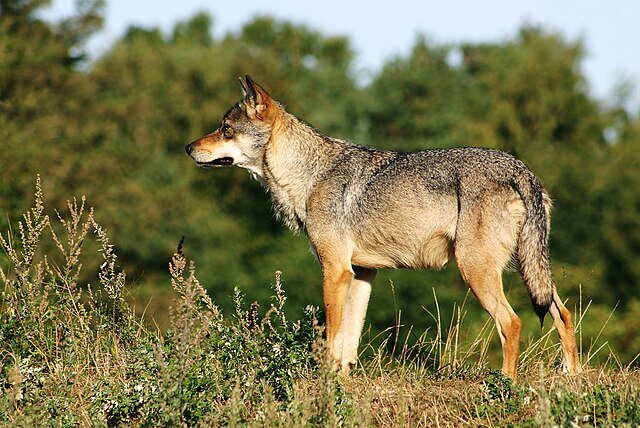
After centuries of roaming the mountain ranges of Andalucía in southern Spain, the wolf, scientifically known as Canis lupus signatus, has been officially declared extinct in the region. The Andalucian government has conducted a wolf population census since 2003 to monitor the species and manage conflicts with the local population, particularly farmers.
However, a report from the Andalucian government’s environment department states that “since 2020 there has been no sign of the wolf being present in Andalucía,” despite the wolf being a protected species. Although estimates indicated the existence of six to eight wolfpacks in the region, mainly in the Sierra Morena, with up to 56 individuals as recently as 2010, experts assert that there has been no evidence of wolves in Andalucía since 2013 and probably no reproductive groups since 2003.
“This is bad news and it confirms the negative trend for the few existing wolfpacks in southern Spain, which are threatened through being physically and genetically isolated from wolves in the rest of Spain, by loss of habitat, poaching and illegal hunting,” said Luis Suárez, the conservation coordinator for the World Wildlife Fund in Spain.
“The shameful loss of wolves in Andalucía is directly related to the lack of political will on the part of the regional government to adopt conservation measures,” Suárez added.
“It’s incomprehensible that, despite a situation that goes back decades, the wolf has not been listed as a species in danger of extinction and there’s been no recovery plan,” he said.
Had the wolf been categorised as endangered, the Andalucian government would have been legally obligated to take protective measures for the local wolf population. However, the government had been hesitant to confront the hunting lobby and livestock farmers for years, opting instead to monitor the wolf population.
“Now it has a responsibility to get to work to guarantee the return of this species to the southern mountains as soon as possible,” he said. “There is no time for excuses.”
Spain boasts the largest wolf population in Europe. In the mid-19th century, there were approximately 9,000 wolves spread across the country. The policy of eradicating wolves led to their drastic decline, with only a few hundred remaining by the 1970s. The ban on poisoning in the 1970s marked a turning point, allowing the species to start recovering.
In the most recent census in 2021, Spain was home to an estimated 2,000-2,500 wolves organized into 297 packs. The vast majority, about 90%, were concentrated in the north-western regions, particularly Castilla y León, Galicia, and Asturias, where they enjoyed protected species status, prohibiting wolf hunting since 2021.
Spain’s government introduced a wolf recovery plan in 2021 with the goal of an 18% population increase, from 297 to 350 packs. However, a study published by the natural history museum in Madrid last year suggests that official estimates of Spain’s wolf population may be overly optimistic, indicating that actual numbers are lower than reported.
“Populations are typically assessed over a period of two years which is insufficient to determine within a significant margin of error whether a population is increasing, in decline or stable,” said Victoria González, a researcher on the project.
——————————————————————————
At Natural World Fund, we are passionate about stopping the decline in our wildlife.
The decline in our wildlife is shocking and frightening. Without much more support, many of the animals we know and love will continue in their decline towards extinction.
When you help to restore a patch of degraded land through rewilding to forests, meadows, or wetlands, you have a massive impact on the biodiversity at a local level. You give animals a home and food that they otherwise would not have had, and it has a positive snowball effect on the food chain.
We are convinced that this is much better for the UK than growing lots of fast-growing coniferous trees, solely to remove carbon, that don’t actually help our animals to thrive.
This is why we stand for restoring nature in the UK through responsible rewilding. For us, it is the right thing to do. Let’s do what’s right for nature!
Donate today at https://naturalworldfund.com/ and join in the solution!

